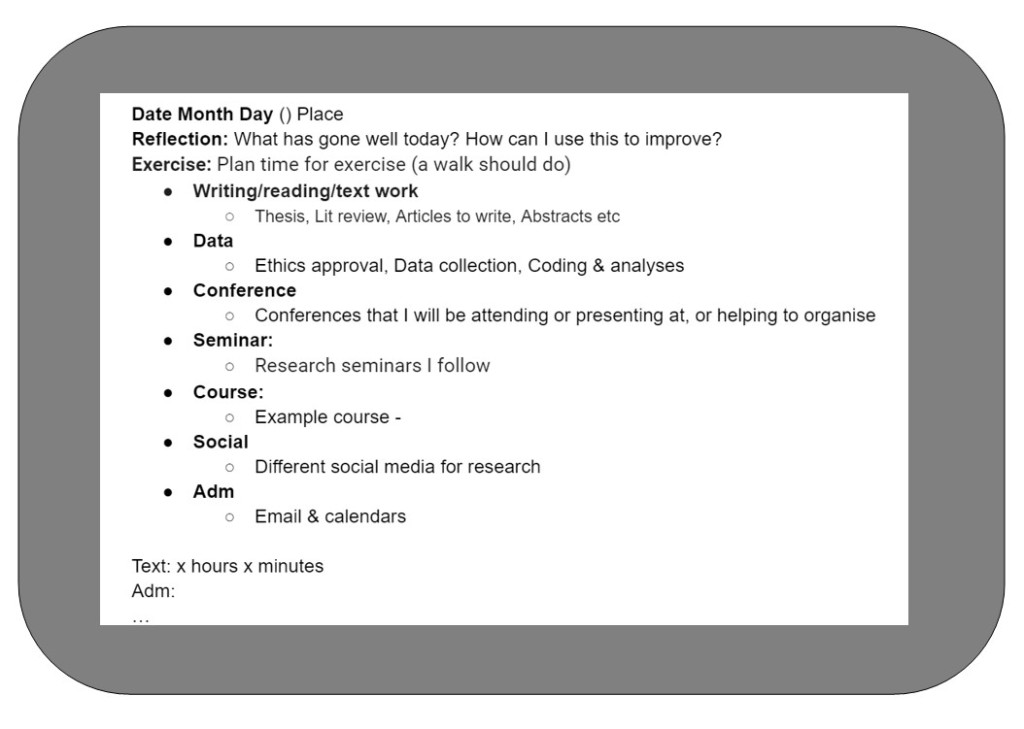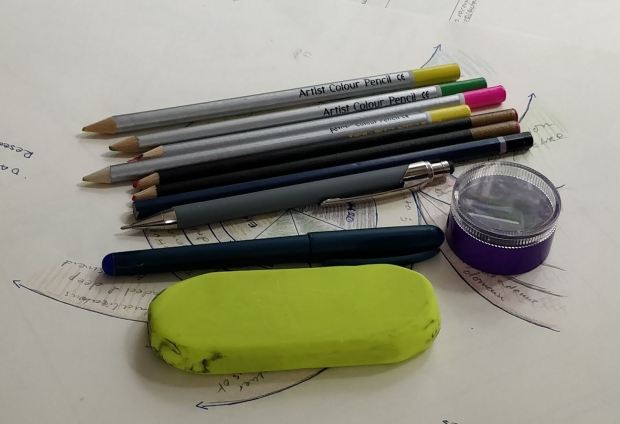If you are at the beginning of your PhD process or if you have become lost in the process and the work load don’t lose heart. When talking to other doctoral student who are just starting I have been asked multiple times how I manage to do this and work at the same time. And the answer is structure. I hope this post can help.
I have been able to keep on track with my PhD process while I also work. Now how to I do this without breaking? Because I’m not. The answer is structure, not just in the writing or the research but a personal structure for the whole process. There are some key elements to this.
Keep track of time
First of all I calculated how much time each week (on average) I need to put into my PhD work. Now I’m doing my PhD in the UK and part time which means I have five years, and not three, to complete my doctoral training and research.
Keep a log
Then I keep a combined log-planner for my work. I plan ahead for each week, what tasks need to be completed and approximately how many hours I should work each day. Some days I do more work and other days less. I also plan for time off. For my log-planner I use Google Docs, but you could use any application that you feel comfortable with and which allows you to plan and keep track of what you are doing.
The good thing about keeping a log-planner in Google Docs is that I can access this from multiple appliances and I’m careful to add the 5,10,15 minutes on the train or bus when I check my email, calendars, social media (research related posts). For each day I update my Log-Planner for what I’ve actually done and move things not complete ahead to the next day. So, the planner also functions as a ‘to-do-list’. In this way I save time because I keep everything in the same place. For meetings and such I use the University Outlook Calendar, but I add a note about meetings in my log. I also add short notes and reflections as I go along, taking care to also note what went well today. I keep one log for each term and the summer and save these in pdf format at the end of each term. This way I have a complete log of what I have been doing, I can pace my work so that my work load becomes reasonable and I don’t have to feel bad or stressed when I take time off. I then have an Excel document that calculates the total time for me, but you can also do that manually. I keep track or hours for each day, each week (+ or – ) and then for the whole year.
There are a number of ways you could do this, but they key take away should be
- Plan and keep track of your time
- Work when you have planned to (not later)
- And keep a record
Structure your reading
The third thing I recommend any doctoral (or post-graduate) student to do is to create a record of your reading. This you can do in multiple ways. The most simple option is to have a document template for your academic reading and notes, and create one document for each title you read.
I use a database solution instead, with one entry (page) for each title. This allows me to search across my readings using keywords. Creating a structure using some digital tool that will allow you to search your notes will save time and effort when you need to reference to previous research or other literature.

